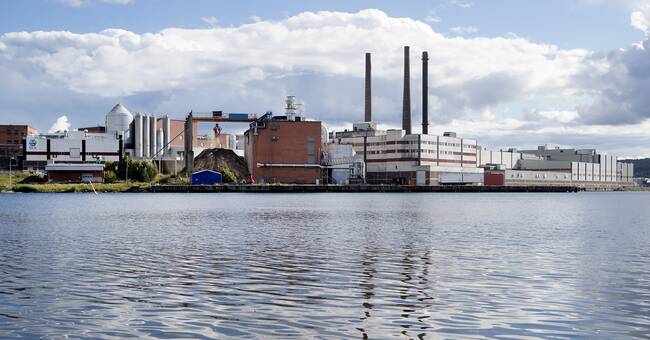At SCA in Sundsvall, the company management held a press conference together with the union on Wednesday. I have seldom seen a press conference so liberated from empty words. It was relevant information from the management, cohesive but sensible comments from the union and exclusively important, sensible questions from the journalists.
It will be a hard blow for Sundsvall when most of the 800 employees who work with manufacturing and selling printing paper lose their jobs. But everyone knows that the numbers have spoken their clear language for a long time: the newsprint market has fallen by five percent a year since 2005.
Demand disappeared overnightThe decommissioning began as early as 2015 with one of the then four machines being shut down. The union had expected the paper mill to be up and running for several more years. Not that everything would be closed in one go. But then came the corona crisis. 30-40 percent of demand disappeared "overnight" according to the CEO.
From Ortviken's paper mill, the paper comes to magazines of all kinds - the information manager exemplifies with Affärsvärlden, Svenskt Jakt and Sveriges Natur. It is only in Sweden that you subscribe to magazines. In the rest of Europe, people go out and buy them in the store, which of course people did not do when they became trapped in their homes and the shops blocked again.
Advertising sales have plummeted, which means that every newspaper that is printed after all contains fewer pages. Direct mail has also fallen sharply for that reason.
So the paper mill has been going at half speed for the past six months. At least one machine has been standing still all the time, and now not only paper but also money is flowing out of the mill.
Bets on pulp - for online shopping20 percent of SCA's sales disappear when the mill closes. Instead, SCA will invest in pulp for toilet paper and packaging. Eight billion has already been invested in the pulp mills in Östrand and Obbola, and there will be another eight billion. Where Ortviken's paper mill stands, it will be a pulp mill worth over one billion kronor.
Because when newspaper death takes hold, SCA expects to be saved by what people seem to do instead of reading the newspaper - online shopping. The items shopped online must be packed in a carton before being sent. The need is increasing avalanche now that e-commerce is growing rapidly.
Both the death of paper newspapers and e-commerce have been accelerated by the corona crisis, as has much else to do with digitalisation.
There are several examples of major warnings in, for example, the automotive industry, which are actually about conversion as a result of digitalisation and new technology, but where reference is made to the acute corona crisis.
"Had been under normal circumstances"At SCA, as well as at the newspaper editorial offices around the country, it is very well known that the printed word is out of date. And that no one will be able to feed on people reading things on paper for a particularly long time. But it is hard to believe that the SCA management has really been able to block everything at once under normal circumstances - even if it might have been the most economically advantageous even if the corona crisis had not occurred.
And it is difficult to free oneself from the suspicion that it was more or less clear already in the spring that it would be like this - SCA chose not to apply for state redundancy support, despite negotiations being initiated about it, and despite the factory going at half speed. The explanation for that, the management says today, was the risk that the jobs would still not remain.

